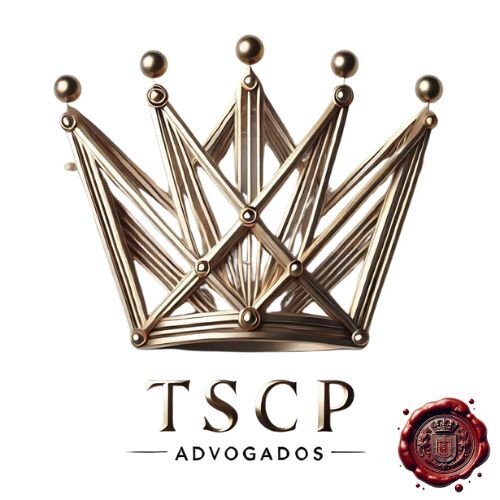Best Probate Lawyers in Porto
Share your needs with us, get contacted by law firms.
Free. Takes 2 min.
List of the best lawyers in Porto, Portugal
About Probate Law in Porto, Portugal
Probate in Porto, Portugal, refers to the legal process that takes place after someone passes away, to ensure their assets and property are correctly distributed according to their will, or in accordance with the law when there is no will. This process involves validating the will, settling debts and taxes, and distributing what remains to rightful heirs or beneficiaries. In Portugal, probate matters are usually handled by the civil courts and public notaries, depending on the complexity of the estate.
Why You May Need a Lawyer
Probate can be a complex and emotionally challenging experience, especially after losing a loved one. Here are some situations where legal assistance is particularly helpful:
- There are disputes among heirs or beneficiaries regarding the distribution of assets.
- An estate includes foreign assets or non-Portuguese heirs.
- The deceased owned a business or held complicated assets.
- There is no will, or the will is being contested.
- Outstanding debts or tax issues make the settlement difficult.
- The legal process is unclear or overwhelming due to the documentation required.
A lawyer can help clarify your rights and obligations, facilitate communication among heirs, handle paperwork, and represent you in court if necessary.
Local Laws Overview
Porto, as part of Portugal, follows national laws regarding inheritance and probate. Some key aspects include:
- Mandatory Heirs: Portuguese law recognizes certain family members as “legitimate heirs” or forced heirs, such as spouses, children, and, in their absence, parents. These heirs are entitled to a fixed portion of the estate, regardless of the will's content.
- Public Notaries: Many probate matters, especially uncontested ones, can be processed by a public notary, which can simplify and speed up the process.
- Succession Process: The process starts with an inventory and identification of heirs, assessment of assets and debts, and legal division of property.
- Taxation: Portugal abolished inheritance tax for close relatives, but stamp duty (Imposto do Selo) at a rate of 10 percent applies to most inheritances, except for spouses, children, grandchildren, and parents.
- Foreign Elements: If the deceased or heirs have foreign nationality or residence, European Union regulations or international private law may also apply.
Frequently Asked Questions
What is probate and when is it required in Porto?
Probate is the legal procedure for administering the estate of a deceased person. It is required whenever property, assets, or significant wealth need to be transferred to heirs or beneficiaries, especially if disagreements exist or if real estate is involved.
Who are considered forced heirs under Portuguese law?
Forced heirs typically include the spouse, children, grandchildren, and, in their absence, the parents of the deceased. By law, these individuals cannot be excluded from a minimum share of the estate.
Can a will override the rights of forced heirs?
No, a will cannot fully override the rights of forced heirs. These heirs are guaranteed a minimum legal share, regardless of the contents of the will. The remaining assets can be distributed at the deceased’s discretion.
Is it necessary to hire a lawyer for probate?
While not always mandatory, hiring a lawyer is highly advisable for complex probate cases, contested estates, or if foreign assets or parties are involved.
What documents are generally required to start probate?
Commonly required documents include the death certificate, the will (if available), identification documents of heirs, property titles, and a list of assets and debts.
How long does the probate process take in Porto?
The timeline varies. Simple cases can be resolved in a few months, while complex, contested, or international cases may take years.
Do beneficiaries pay tax on an inheritance in Porto?
Direct relatives such as spouses and children are exempt from inheritance tax but may still be subject to stamp duty in certain cases. Other beneficiaries may have to pay a stamp duty of 10 percent.
What if there are debts left by the deceased?
Debts are settled from the estate before distribution. If debts exceed assets, heirs can renounce the inheritance to avoid personal liability.
Can foreigners inherit property in Portugal?
Yes, foreigners can inherit property and assets in Portugal. However, there may be additional legal steps, especially if heirs reside abroad.
What happens if the deceased did not leave a will?
If no will exists, Portuguese succession law determines how assets are divided among relatives, giving priority to the closest family members.
Additional Resources
For those seeking more information or assistance with probate in Porto, consider the following resources:
- Institute of Registries and Notaries (Instituto dos Registos e do Notariado): Responsible for notarial services and civil registration, which includes many probate matters.
- Order of Lawyers (Ordem dos Advogados): The official body for lawyers in Portugal. They can help you find experienced legal professionals specializing in probate and inheritance law.
- Local Notaries: Local notarial offices can often guide you through simpler probate procedures and provide necessary documentation.
- Porto Courts: The civil courts in Porto handle probate disputes or complex cases that require judicial intervention.
- Portuguese Consulates: For non-residents or foreigners with interests in Portugal, consulates can offer general guidance and support.
Next Steps
If you believe you need legal advice or assistance with probate in Porto, Portugal, consider the following steps:
- Gather all relevant documents, including the death certificate, will (if available), property deeds, and information about the deceased's assets and debts.
- Contact a local attorney specializing in probate or inheritance law, especially if the estate is complex or contested.
- If the estate is straightforward and uncontested, reach out to a public notary for guidance on the administrative process.
- Clarify your questions and concerns with a legal professional before proceeding further, especially if there are international aspects or multiple heirs involved.
- Keep detailed records of all communications and documentation throughout the probate process.
Probate can be challenging, but with the right information and expert guidance, you can navigate the process successfully and achieve the best outcome for all parties involved.
Lawzana helps you find the best lawyers and law firms in Porto through a curated and pre-screened list of qualified legal professionals. Our platform offers rankings and detailed profiles of attorneys and law firms, allowing you to compare based on practice areas, including Probate, experience, and client feedback.
Each profile includes a description of the firm's areas of practice, client reviews, team members and partners, year of establishment, spoken languages, office locations, contact information, social media presence, and any published articles or resources. Most firms on our platform speak English and are experienced in both local and international legal matters.
Get a quote from top-rated law firms in Porto, Portugal — quickly, securely, and without unnecessary hassle.
Disclaimer:
The information provided on this page is for general informational purposes only and does not constitute legal advice. While we strive to ensure the accuracy and relevance of the content, legal information may change over time, and interpretations of the law can vary. You should always consult with a qualified legal professional for advice specific to your situation.
We disclaim all liability for actions taken or not taken based on the content of this page. If you believe any information is incorrect or outdated, please contact us, and we will review and update it where appropriate.









